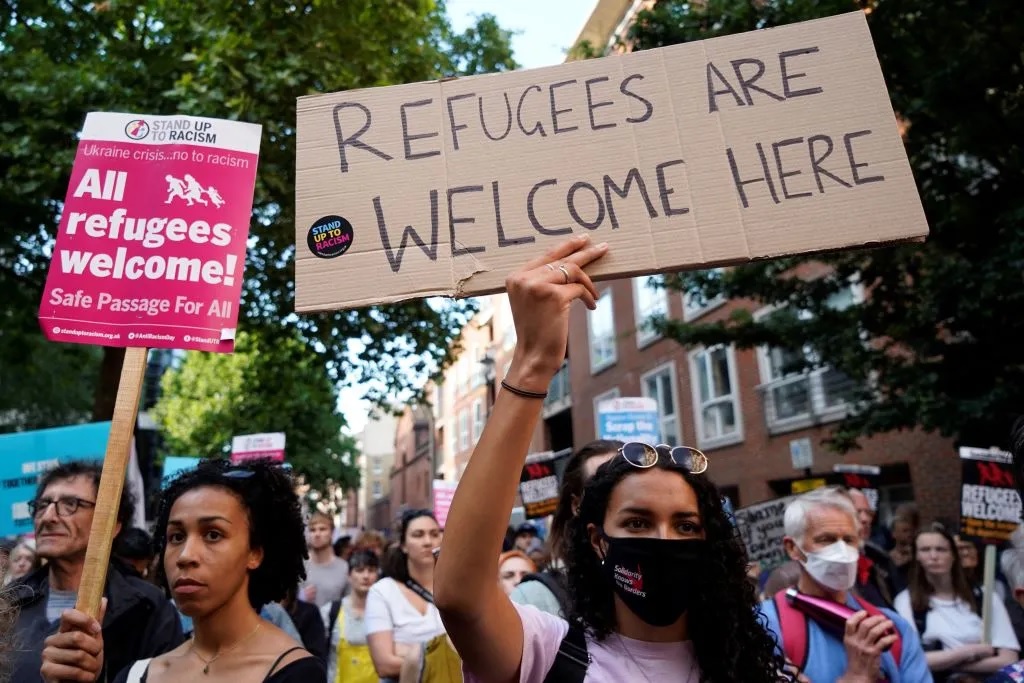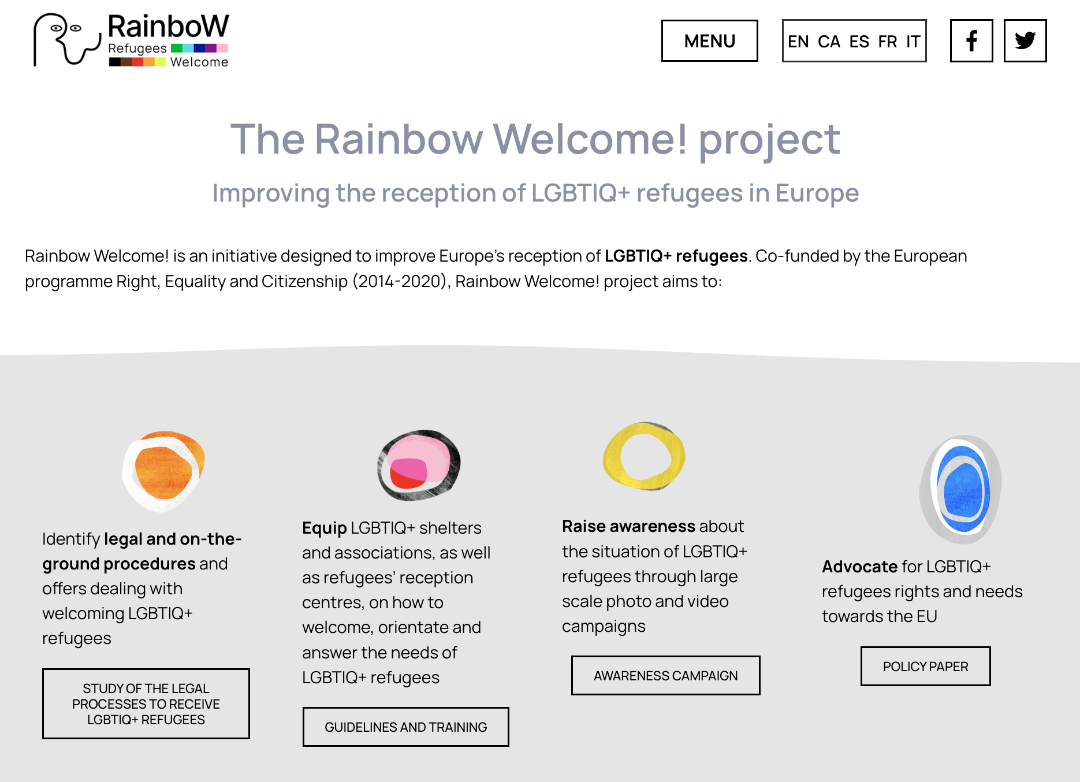By Lisa Bensoussan,
Happy Pride Month! As rainbow flags flutter in the air and vibrant celebrations unfold, it is crucial to remember that the journey towards equality and acceptance for the LGBTQIAP+ community has not been without its struggles. In this Pride month, amidst the festivities and parades, it is essential to shine a light on a group whose experiences often go unheard: LGBTQIAP+ refugees. While we celebrate progress and diversity, it is equally important to recognize the unique challenges faced by those forced to leave their homes due to persecution, discrimination, and violence based on their sexual orientation or gender identity. Let us take this opportunity to explore their stories, understand their plight, and advocate for their rights and inclusion.
LGBTQIAP+ individuals seeking asylum or migrating to the West often face severe persecution in their home countries. For instance, in Uganda, same-sex relationships are illegal, and those found guilty can face a lifetime prison sentence, while in Iran, homosexuality is punishable by death. The atrocities extend to places like Chechnya, where authorities target and persecute queer people, and Jamaica, where outdated laws fuel hate and violence against the rainbow community. These examples are just a fraction of the countless acts of violence and discrimination faced by LGBTQIAP+ individuals worldwide. Driven by persecution and violence due to their sexual orientation or gender identity, these individuals experience profound emotional and psychological upheaval. Leaving behind their communities and often facing hostility during their journey, refugees display remarkable resilience and strength. It is crucial to understand the dire circumstances they endure and the urgent need for international support and safe havens to protect their lives.

In many countries, claiming asylum based on being LGBTQIAP+ is only accepted by a few, including the United Kingdom. However, even in accepting countries, the asylum process can be incredibly challenging. This is particularly true for non heteronormative refugees seeking secure protection in the UK, as they often face significant hurdles. Reports reveal degrading ‘tests’ to determine their sexual orientation, using stereotypes such as ‘flamboyancy’ in gay men as a measure. The system exhibits a ‘culture of disbelief,’ with 4 in 10 LGBT asylum claims being rejected for lack of ‘proof’ or danger faced. For instance, Anu, a Nigerian woman, underwent forced genital mutilation as a teenager after her mother discovered her girlfriend. In the UK, she married a man under parental pressure, but the marriage ended quickly. Cut off by her parents and detained for six months after her student visa expired, she feared disclosing her sexuality during her asylum application. When she later appealed and revealed her lesbian identity, the Home Office disputed it, citing her past marriage to a man. It raises questions about the burden of proof for heterosexuality, such as how an unmarried and childless heterosexual could substantiate their orientation.

In response, to the challenges faced by the community, various support systems and initiatives have emerged to provide much-needed assistance and create welcoming environments. One such initiative is the Rainbow Welcome! project, co-funded by the European program Right, Equality, and Citizenship, which aims to improve the reception of LGBTQIAP+ refugees in Europe by identifying legal procedures, equipping shelters and reception centers, raising awareness, and advocating for their rights within the EU.” It is essential nonetheless to recognize that they alone are not sufficient to address the magnitude of the challenges faced. For instance, a previous study conducted by the Williams Institute revealed that between 2012 and 2017, approximately 30,900 LGBTQIAP+ individuals applied for asylum in the United States, with a significant number seeking protection due to persecution based on their sexual orientation or gender identity. Specifically, a majority of these asylum seekers originated from the Northern Triangle region of Central America, including Honduras, Guatemala, and El Salvador. This highlights the urgent need for comprehensive support systems and robust policies to ensure the safety and well-being of LGBTQIAP+ refugees worldwide.

As Pride month draws to a close, let us carry forward the awareness and understanding gained about the experiences and challenges faced by LGBTQIAP+ refugees. Their stories remind us that while we celebrate progress and diversity, many individuals around the world continue to endure unimaginable hardships due to their sexual orientation or gender identity. It is incumbent upon us to stand in solidarity with them, advocating for their rights, and working towards creating safe and inclusive environments. By supporting organizations and initiatives, urging for improved policies, and fostering empathy and acceptance within our communities, we can contribute to a future where all individuals, regardless of their origin, find the safety, respect, and freedom they deserve. Together, we can ensure that no one is left behind in the journey towards equality and inclusion.
References
- The Rainbow Welcome! project homepage. rainbowelcome.eu. Available here
- “LGBT refugees are part of a long history of queer migration — and they need our support” by Ahmed Elmi, imix.org.uk. Available here
- “New study on LGBTQ refugees and asylum seekers highlights the need for data and research” by Chelsey Johnstone, outinjersey.net. Available here
- “UK government denied lesbian refugee ‘because she’d been married to a man’” by Patrick Kelleher, thepinknews.com. Available here




